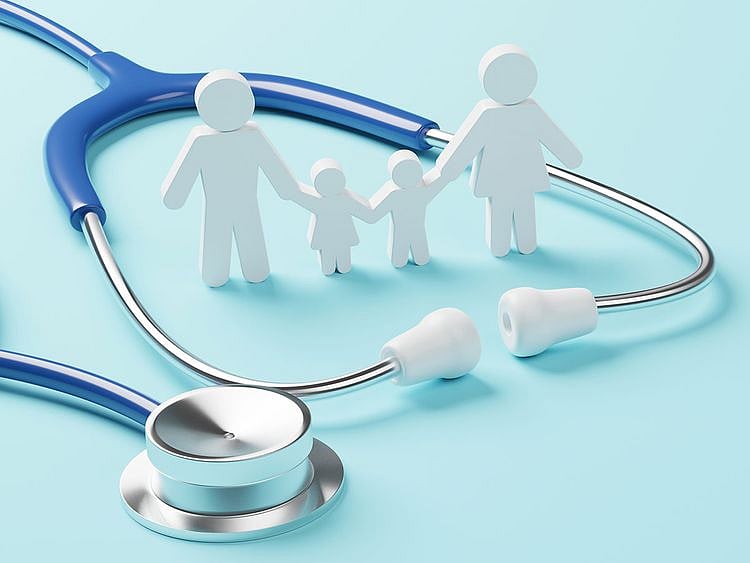Every year, World Gratitude Day is celebrated on September 21. On this day, people take time to appreciate the sources of joy in their lives.
Studies show that expressing gratitude benefits people’s mental and physical wellbeing, including improving mood, sleep, and immunity and decreasing depression and anxiety.
People can practise gratitude in numerous ways, including paying attention to positive moments and enjoying mindfulness, keeping a gratitude journal, showing heartfelt appreciation to others, volunteering and paying it forward, among many others.
COVID-19 has resulted in a profound shift in the way gratitude is perceived and practised. In the face of adversity, unprecedented challenges and uncertainty, gratitude has become a powerful source of resilience for people worldwide. The pandemic has also made communities more aware of the fragility of life and the importance of good health. This newfound awareness has given rise to increased gratitude for one’s health and the health of loved ones.
Research has shown that self-care has increased, particularly in the Middle East, with more people investing more time and money in their healthcare. Despite this, there is a need for continued public awareness and interventions around the prevention of communicable and non-communicable diseases, especially among ageing and immunocompromised individuals.
The following are my top health recommendations and tips on how you can showcase gratitude to loved ones, especially older family members, this World Gratitude Day.
As we age, our bodies undergo multiple changes, and we are more at risk of diseases and complications. This is why adopting a proactive approach to maintain good health as we and our loved ones enter senior years is crucial, leaving us better prepared to face health challenges and reduce risks.
Regular exercise
Exercise is indispensable in all stages of life to maintain good health and physical mobility, and it can enhance cardiovascular fitness, strengthen muscles and bones, and improve flexibility. Falling and fractures can be prevented, as can chronic diseases such as diabetes, osteoporosis and heart disease. It also improves sleep quality and has been shown to have positive effects on mental health.
Consult a healthcare provider and a qualified fitness professional if loved ones have any underlying health concerns or if exercises need to be modified to accommodate specific health conditions.
Balanced diet
Diet plays a crucial role in promoting healthy ageing by equipping the body with essential nutrients that support overall health and reduce the risk of chronic diseases associated with ageing. Prioritise a nutrition that promotes heart and digestive health, boosts immune function, reduces inflammation, supports weight management, and contributes to strong bones, muscles, and joints.
Sleep hygiene
It’s critical for older adults to have good sleep practices, such as establishing a regular sleep schedule, creating a comfortable and sleep-disruption-free environment and managing stress. Remind your loved ones to seek help from a sleep specialist if they face any sleep problems, as lack of rest can be detrimental to their physical and mental health.
Fall prevention
While falls are more common among older adults (65 years and above) and can affect their physical ability to move independently, at-home accidents can happen to anyone. To prevent hazards, look out for cluttered or slippery floors, uneven surfaces, loose rugs, the placement of sharp objects and furniture that can lead to collision and head injuries, and even insufficient lighting. To help your parents and loved ones, install mobility aids, such as non-slip mats and handrails, where most necessary.
Social connections and mental stimulation
To truly show gratitude to loved ones, help them stay socially engaged through family and friends and activities that challenge their cognitive abilities through puzzles, reading, or learning new skills. Ensure you regularly visit them and show them your love and appreciation.
Routine health check-ups
Of the utmost importance is regular health check-ups with a family doctor or general practitioner. Routine medical check-ups for adults are extremely important for the early detection and management of any disease or condition that poses risk with age, those of which include diabetes, cholesterol, blood pressure, and more.
Immunisations
Vaccinations should not end at a young age, and they are especially valuable as people grow and approach their senior years. Among the most important vaccines for adults are the seasonal flu, pneumococcal, and shingles vaccine. As the immune system ages and declines, vaccination is the second most effective public health intervention for disease prevention and reducing further complications. With vaccines, people can protect themselves from debilitating conditions like shingles, which cause severe, long-lasting pain and disrupt their daily lives. You can help your loved ones learn more about the available adult vaccinations by encouraging them to speak with their doctor.
Helping our loved ones look after their health and wellbeing and live life to the fullest is not only a responsibility and an honour but also a gesture of love, gratitude, and consideration.
— Dr Ahlam Al Marzooqi, Consultant of Internal Medicine and Rheumatology at Emirates Health Services
Sign up for the Daily Briefing
Get the latest news and updates straight to your inbox
Network Links
GN StoreDownload our app
© Al Nisr Publishing LLC 2025. All rights reserved.
